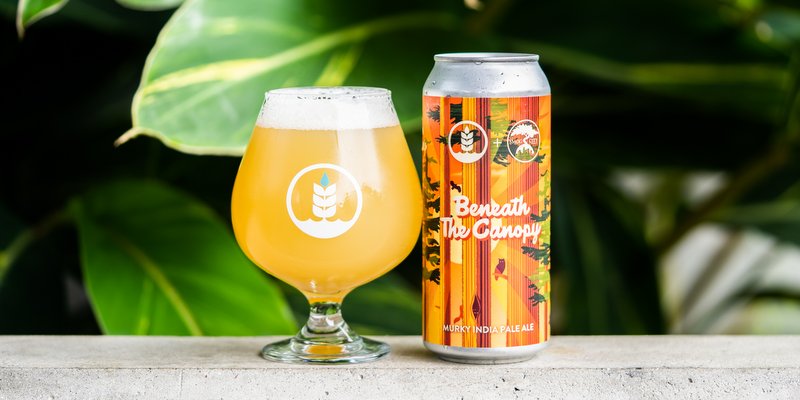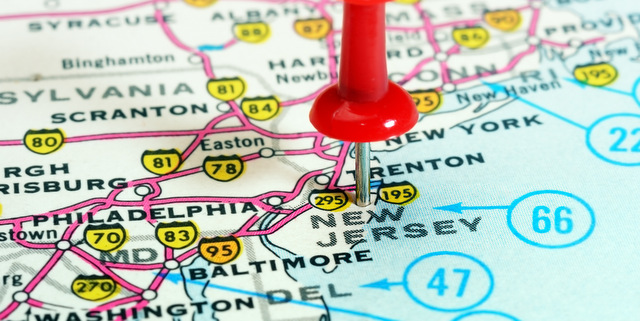
The inception of the craft brewery was a commitment to challenging the status quo in the beverage business and beyond. It’s a call to action that incorporated social responsibility, philanthropy and environmentalism into the business plans of small operations across the United States. Even now, during these times when businesses are struggling to stay afloat, America’s craft movement still represents important community centers.
In response to COVID-19, for example, brewers from all over the world united and flexed their humanitarian muscle by putting unique twists on a universal brew. All Together, a title coined by the folks at Other Half Brewing, has spread across social media platforms with the proceeds continuing to help stimulate necessary local hospitality businesses during a revenue shortage. As COVID-19 furthers it’s path of destruction, the collective social conscience of craft breweries is confronted with a new challenge.
Tapping into social justice
This last week has called all of us, craft brewers included, into direct action once again, but this time sustaining meaningful change requires a more introspective approach. It starts with a thorough deep dive of self and privilege.
Despite many years working in the social service sector [Editor’s note: Check out Julius’ site and bona fides below] with people who have endured the sort of trauma that my worst nightmares fail to conjure up, I have no idea what it’s like to live under a constant state of surveillance. My guess is that George Floyd’s final words: I can’t breathe, on some level help contextualize the daily experience of being black in America. But I would only be guessing. As a white hetereosexual male, my anti-racist journey begins by uderstanding how my privilege is always at work. From there and without defense, I offer my ears and my time to understand any dissonance toward what my whiteness represents.
I can’t help but envision the microbrewery as a potential hub for social justice dialogue and reconciliation. A place where differences in opinion and experience make the world go round instead of further divide it.
As someone whose life’s work involves the expression of empathy through listening to others, most of the time at work — but sometimes over a pint of craft beer — I can’t help but envision the craft brewery as a potential hub for social justice dialogue and reconciliation. A place where differences in opinion and experience make the world go round instead of further divide it.
Concerning racial equity and anti-racist organizing, breweries are often in this position: Wanting to build a community-oriented foundation, while also being in need of customers that have the time and money to afford the leisurely craft beer experience.
What intervention approaches best suit the socially conscience craft brewery in a time of unprecedented crisis?
Multiple Bay Area breweries have offered sentiments on racial injustice on their webpages followed by a desire to drive social change in their respective neighborhoods. After individual deep dive, the craft brewery must understand that real social change must start with a deconstruction of its own establishment.
A note on deconstruction
This intellectual deconstruction can begin by asking, what neighborhoods do we serve and why do we serve them? Craft breweries truly committed to organizational change must first plant themselves firmly in the ethos that inspired the industry: Community and passion, joy and commitment.
From there, we can ask the question (and answer it honestly): How can we become the neighborhood hub for an undeniably positive experience regardless of race, gender and class?
Start with structural obstacles. What other businesses flourish in the neighborhood? Whole Foods and boutiques or Safeway and liquor stores? Or both? Since disrupting the economic prosperity of a business is not the goal, it’s time to figure out how to grapple with the gentrification of the surrounding area.
What is the correlation between your brewery’s location and sustained economic success/growth? Was the inception of your brewery aided by housing renovations that moved people out of town? And lastly, what drives your marketing strategy?
Grappling with those questions is not easy, but it’s an important part of this process. Only you, your team and your community can answer them. Afterward, the planning can begin.
Beyond existenial questions, I have come up with a few social justice- focused concepts breweries could consider implementing immediately:
1. A beer series dedicated to social justice
Each week for a month, breweries brew a beer and donate proceeds to a local non-profit committed to racial equity. Below is a criterion for selecting your non-profit (Humble Sea Brewery’s post on Instagram is a solid reference for carrying out the steps below).
- The majority of the non-profit’s workforce should provide direct field-related service and not spend most of their time in an office. You can find this out easily. Just look at the positions on the website and the ratio of direct service providers to management.
- The non-profit should be committed to interventions rooted in an equity lens and should be able to comprehensively describe what those are (see Humble Sea).
- Each week, the beer could have a social justice oriented name that is aligned with the cause. If the idea is to disrupt the school-to prison pipeline, then the name of the beer would speak to that in sensitive and culturally competent manner, maybe even provide education on the topic on the packaging.
2. Increasing access increases equity
Social justice involves increasing access to underserved communities. For example, Barebottle Brewing in San Francisco took the day off Monday to figure out how they could implement more inclusive and diverse approaches. Major Kudos to them! They are a brewery in Bernal Heights, a neighborhood that divides the haves from the have not’s in the neighboring Mission District. So, how can they increase access to craft beer for those in the Mission?
The old fashioned route — spread the word door to door, telephone poll by telephone poll. The era of social distancing has further confirmed there is a gap in access. Those who live in underserved communities do not have the same level of access to media as those who live in more middle-upper middle-class communities. So, using the internet to spread the word in the name of equity may actually miss the mark. Get out on the streets and invite people from those communities over for a beer. Respect the cultural experiences and rituals that continue to define their neighborhoods.
Host a truth-telling day/night. Invite people from more underserved communities to use the brewery’s platform to share their stories. Ask for a skilled facilitator to host this experience. Make it an event, but engage local non-profits in helping invite/select local leaders and activists from attending communities for accurate representation.
Facilitate creative workshops/contests. Give artists, dancers, writers, etc., a chance to showcase their talents. The winner or winner(s) work will be featured on the walls of the brewery, or they will be honored in some manner.
3. Pints for Peace
Encourage those at odds with one another to reconcile their differences over beer. There is a famous photo of longtime Harvard Scholar, Professor and Civil Rights Activist Henry Louis Gates Police Officer Agt. James Crawley and President Obama sharing a beer at the Whitehouse after Gates was wrongfully accused and arrested at his own home.
This one is a bit trickier as confidentiality limits what we can and can’t know. That said, there may be local agencies who are willing to coordinate such efforts. Can you imagine local police departments facilitating reconciliation over beers to address civilian complaints? The Bay Area is the ideal location for a pilot program of this nature. The brewery could simply volunteer to host and partner with local agencies who can select the proper personnel to facilitate.
For the police department, the idea of Pints for Peace could be interesting for a few reasons:
- It may expedite the internal investigation process, which is time consuming and rarely delivers justice to the person who filed the complaint.
- What better way to unify and reconcile tension than over a beer?
- It will relieve local judges and probation departments whose work is beleaguered by low-level cases.
The criteria for participation in Pints for Peace would be strict due to the ineligibility of people who are currently on probation and struggling with substance use issues. Also, the actual sit-down can’t interfere with the workday. That said, with careful planning and thoughtful facilitation, this form of restorative justice is possible.
If someone were to ask me what public place facilitates the most happiness, the taproom is my automatic response. And not just because of the alcohol. It’s because people come to the taproom to take part in a pro social experience. It may serve as a temporary distraction for other pressing problems, or it may be the place that cracks a safe full of vulnerability and truth.
In times of crisis, taprooms now have the opportunity to serve up the elixir of conversation complimented by a pint of craft beer. Let’s get to work.
Julius Mills-Denti is a craft beer enthusiast who spends his days serving youth in Alternative Education settings, including Juvenile Halls. He holds a Master’s of Science in Restorative Practices from the International Institute for Restorative Practices. Currently, he works full-time with the Santa Cruz County Office of Education and also recently started a small business called MIRJ Services, Through MIRJ, he facilitates workshops for teachers and social service professionals on how to more effectively communicate with the people they serve. He is a proud husband and father to a three year old daughter. His passion for craft beer has inspired him to write more about the intersection of social justice and the microbrewery industry. Feel free to reach out to Julius if any of the social justice opportunities offered above are of interest to you.






Leave a Reply
You must be logged in to post a comment.